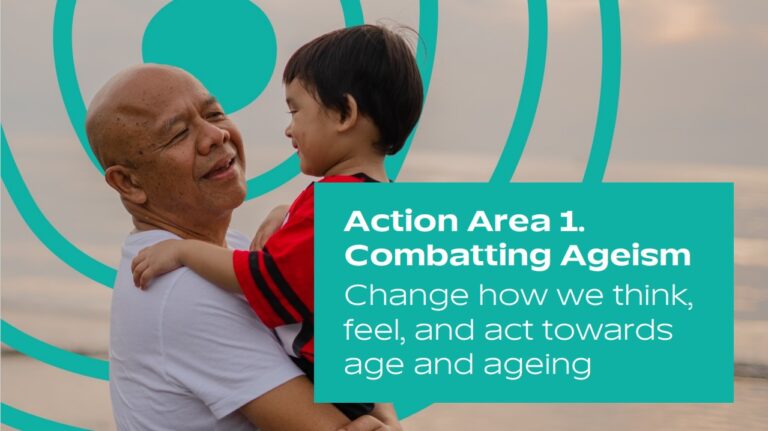Ageism: A Silent Public Health Crisis
November 25, 2024, 9:27 pm

Ageism, despite its magnitude and devastating impact on the health and functioning of older adults, is still not recognized as a public health priority.
Age is often seen as “just a number,” but across the globe, it represents milestones, achievements, and yes, challenges. But what milestones do we truly celebrate when we reach 80? Is it that we’ve simply made itthis far? Or that we’ve maintained cognitive function and independence? Or are these just life’s status quo, rather than achievements?
The responsibility for ageism often unfairly lands on older individuals when, in fact, ageist systems have failed them throughout their lives.
Work by the International Federation on Ageing (IFA) in “vision health” highlights systemic barriers impacting older adults, including health literacy, medication costs, transportation issues and limited access to health services. Most concerning is ageism in healthcare settings, where vision decline may be viewed as a normal part of ageing and not worth treating, potentially discouraging older adults from seeking necessary care.
Another example is in the field of immunization. Barriers to vaccination include access issues, misinformation, lack of awareness, and confusion about eligibility. Ageism compounds this, with the belief that vaccinations aren’t necessary and / or effective for older adults, undermining the importance of preventive care. All of these are modifiable barriers but can only be address through laser focus attention and sustained investment.
2025 marks the midpoint of the UN Decade of Healthy Ageing, www.decadeofhealthyageing.org calling for a deep dive into action areas, including the urgent need to combat ageism. Self-identifying, institutional, and interpersonal ageism all contribute to deteriorating health and functioning, with research linking it to increased cardiovascular stress, higher Alzheimer’s markers, lower cognitive function, and poor health behaviors. These facts should drive our action.
But here’s the real question: When will we stop expecting older adults to lead the charge against ageism? When will we acknowledge that the very systems meant to support and empower them are failing at every turn?
We need systemic change. It’s time to make ageism a public health priority —because the health and well-being of our older population depends on it.
#Ageism #PublicHealth #HealthyAgeing #Healthcare #VisionCare #Vaccination #OlderAdults #UNDecadeOfHealthyAgeing #Equality #Empowermen
